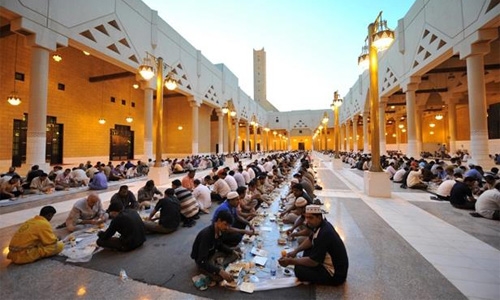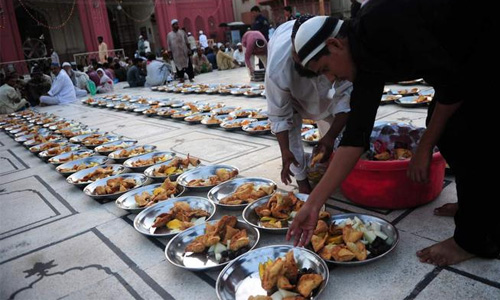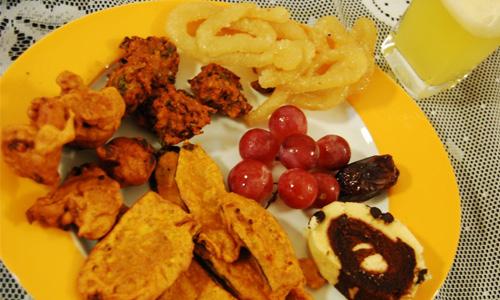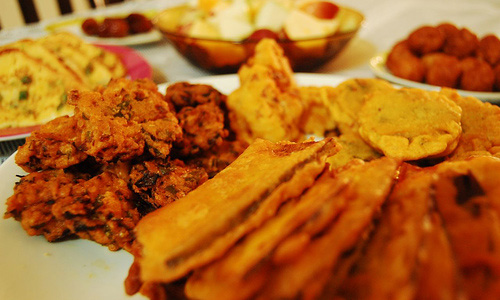
Riyadh : A few minutes before the Maghreb (dusk) prayer every day in Ramadan, many good-doers prepare iftar (fast-breaking) meals and invite fellow Muslims to join them. Almost all mosques Kingdom-wide have such meals for fasting people who come for prayer.
Some people believe so much food is wasted at these mass iftars while others dismiss such apprehensions and call for organizing even bigger iftar projects, Al-Riyadh daily reports.
The total amount of money spent on mass iftars around the Kingdom that are attended mainly by low-income expatriate workers could run into hundreds of millions or even billions of riyals.
Journalist Ayman Al-Ghabawee said one iftar meal costs a minimum of SR10. If a city has 150,000 people who join these parties, the cost of providing them the meals will hit SR1.5 million a day or SR45 million the whole month, said Al-Ghabawee.
“Then we can imagine about cities that have larger number of workers,” he added.
“We have poor and sick people who are in dire need of help. Why don’t we divert the hundreds of millions of riyals that go into mass iftar projects for their benefit? We need to prioritize and decide who is more important: expatriate workers or the poor and sick. These millions can also be used to pay for the treatment of chronic kidney failure patients or to widows and divorced women,” Al-Ghabawee argued.

He said the money should go to charity organizations and other foundations in the Kingdom, not to expatriate workers who earn a decent living.
Dr. Abdulrahman Al-Subaihi, a Saudi, agreed with Al-Ghabawee and said some wealthy people tend to spend large amounts of money on mass iftar events to show off their generosity. They do not care how much food is wasted nor are they aware of how these events are organized.
“Instead of organizing massive iftar parties, benevolent people can hold small iftar events where only dates and water are served. I am against spending huge amounts of money on free iftar meals to feed expatriate workers. The money can be used to help the poor and needy in society or train Saudi youth and increase their chances of landing a job with a decent salary,” he said.

Role of charities
Muhammad Al-Obaid, a Saudi, said charity organizations are supposed to lay down rules for organizing mass iftars. Instead of holding mass events where large amounts of food are wasted, they can issue food coupons that the needy expatriate worker can use at a certain restaurant.
“It seems that we have forgotten about the needy families and those whose husbands have been imprisoned as well as families of martyrs. They are the ones who need our support the most,” he added.

Noble goals
Mishari Al-Dawsari, public relations director at Dawah and Guidance Office in Riyadh, said mass iftar meals have noble goals and help Muslims get together before Maghreb prayer.
These events attract many non-Muslims and encourage them to get involved in the spiritual atmosphere of Ramadan. Many of them have embraced Islam as a result.
“People spend considerable amounts of money on mass iftars and there is nothing wrong with that. They do this because they want reward from God for this particular act. Our Prophet Muhammad (peace be upon him) said whoever gives food to a Muslim to break his fast will get a reward equal to the one who is fasting,” he said.
Al-Dawsari said the money spent on iftar meals is injected into the market because the meals are bought from Saudi companies and expatriate workers are not the only ones who benefit from this money. “People are free to donate their money the way they want. Moreover, the government runs agencies to help the poor and needy and underprivileged members of society,” Al-Dawsari said.




